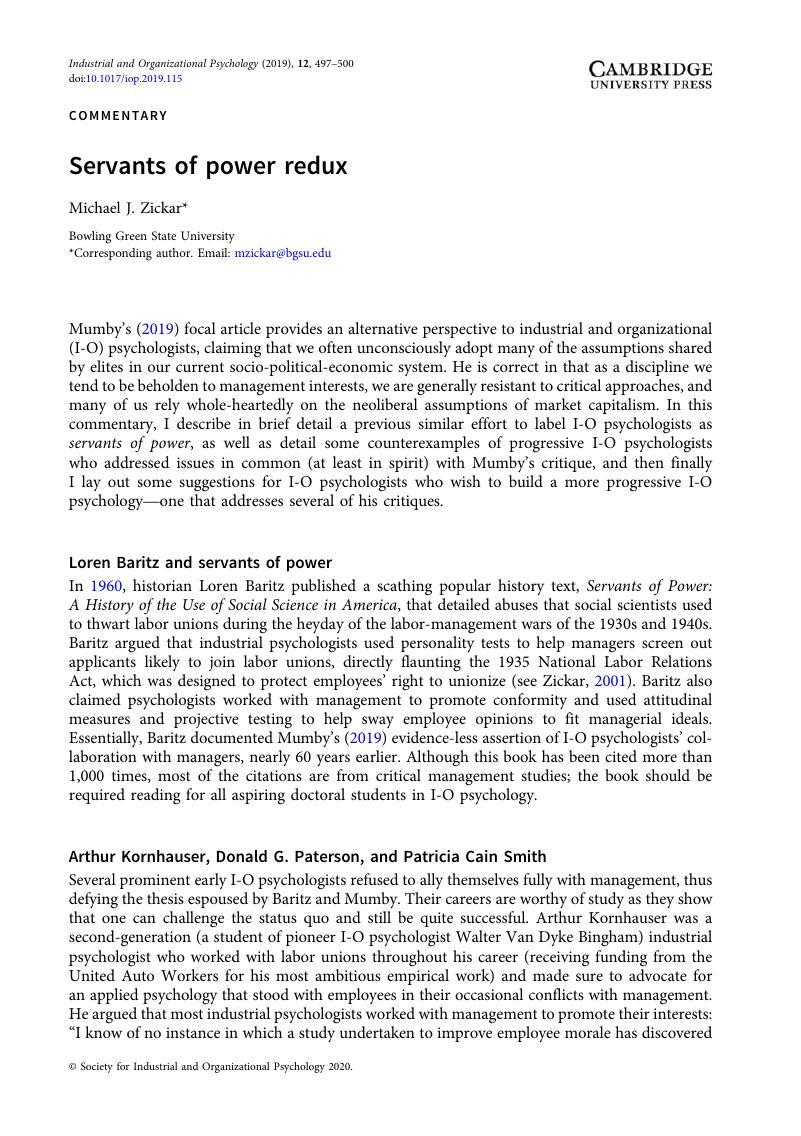No CrossRef data available.
Article contents
Servants of power redux
Published online by Cambridge University Press: 14 January 2020
Abstract
An abstract is not available for this content so a preview has been provided. Please use the Get access link above for information on how to access this content.

- Type
- Commentaries
- Information
- Copyright
- © Society for Industrial and Organizational Psychology 2020
References
Balzer, W. K., Locke, E., & Zedeck, S. (2008). Obituary: Patricia Cain Smith (1917–2007). American Psychologist, 63(3), 198.CrossRefGoogle Scholar
Baritz, L. (1960). The servants of power: A history of the use of social science in American industry. Middletown, CT: Wesleyan University Press.CrossRefGoogle Scholar
Berry, M. O. N., Reichman, W., Klobas, J., MacLachlan, M., Hui, H. C., & Carr, S. C. (2011). Humanitarian work psychology: The contributions of organizational psychology to poverty reduction. Journal of Economic Psychology, 32(2), 240–247.CrossRefGoogle Scholar
Erdheim, J., Zickar, M. J., & Yankelevich, M. (2007). Remembering Donald G. Paterson: Before the separation between industrial–organizational and vocational psychology. Journal of Vocational Behavior, 70(1), 205–221.CrossRefGoogle Scholar
Kornhauser, A. (1957). Democratic values and problems of power in American society. In Kornhauser, A. (Ed.), Problems of power in American democracy (pp. 184–217). Detroit, MI: Wayne State University Press.Google Scholar
Mumby, D. K. (2019). Work: What is it good for? (Absolutely nothing)—a critical theorist’s perspective. Industrial and Organizational Psychology Perspectives on Science and Practice, 12(4), 429–443.Google Scholar
Nord, W. R. (1977). Job satisfaction reconsidered. American Psychologist, 32(12), 1026.CrossRefGoogle Scholar
Zickar, M. J. (2001). Using personality inventories to identify thugs and agitators: Applied psychology’s contribution to the war against labor. Journal of Vocational Behavior, 59(1), 149–164.CrossRefGoogle Scholar


